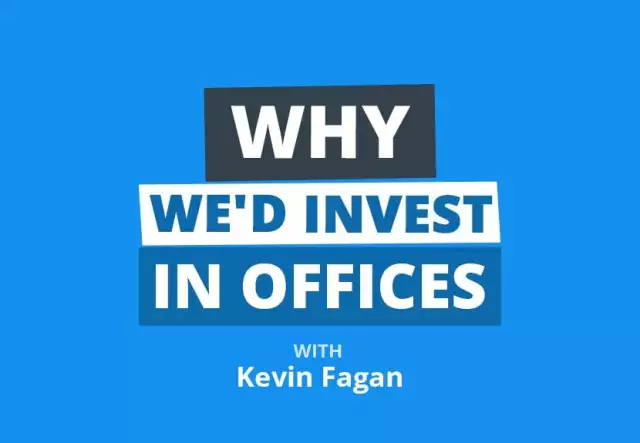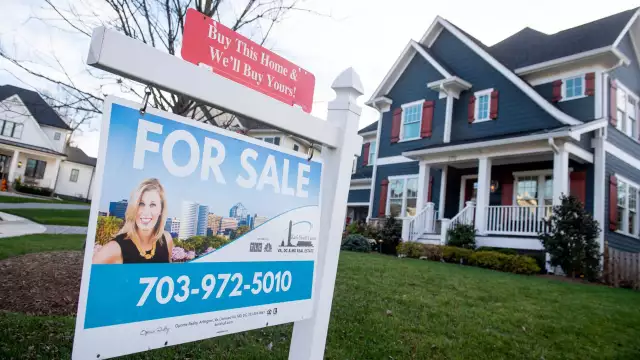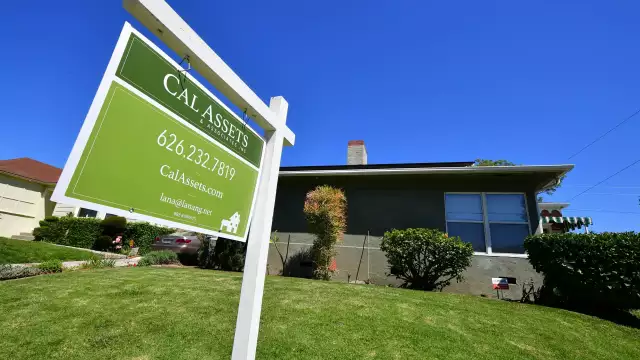All Along It Was Out-Of-Control Speculative Demand That Was The Real Issue
All Along It Was Out-Of-Control Speculative Demand That Was The Real Issue
A report from West Hawaii Today. “‘For every percentage point interest rates go up, we lose 10-15% of our buyers,’ said Gretchen Osgood, principal broker at Hawaiian Isle Real Estate in Kailua-Kona. With the market cooling, Osgood predicted that sellers will begin cutting their asking prices by a few percentage points, but added that most prices on the island already are wildly inflated, so the reduction will be more of a return to reasonable prices to start with. ‘I don’t know how we could avoid a recession at this point,’ Osgood said. ‘The financial machinery is already turning.'”
“The recession could have other effects, said Jessica Gauthier, principal broker for Salt Water Real Estate in Hilo. ‘I think we’ll see a lot of newer Realtors who started during the pandemic going back to other professions,’ Gauthier said.”
The Seattle Times in Washington. “The Emerald, a 40-story luxury condo tower two blocks from Pike Place Market, recently trimmed prices on some of its condos by 10% to attract buyers hit by rising interest rates and economic malaise. Nearby, at the Spire in Belltown, buyers can get a discount, too. The building is offering a year’s worth of homeowners association fees and credits of up to $15,000 toward closing costs or buying a cheaper interest rate from their lender.”
“The deals signal a broader trend in the cooling housing market. Fewer people are buying homes, and prices are starting to level off or drop. Among Seattle homes listed for sale Tuesday, 29% of condos and 31% of single-family homes had a price cut, according to Zillow. In downtown Seattle and Belltown, the median price was essentially flat from last year and down 16% from May. ‘This summer, Seattle has had one of sharpest turnarounds in the market anywhere in the country,’ said Jeff Tucker, Zillow senior economist. ‘Broadly, the condo market is seeing the same, so folks selling condos are trying to get creative.'”
“Sales are lagging initial assumptions at Koda, a new tower in the Chinatown International District where about half of the condos have sold. The developer is now offering 5%-10% price cuts on the condos, said Erik Mehr, whose firm is leading sales at the building. Prices start at around $350,000 for studios, but the highest-end units are around $1 million. ‘We felt like our pricing was pretty accurate and right on the market, but over the last few months, things have shifted. So, we’ve tried to just adjust accordingly,’ Mehr said.”
“Individual condo sellers are cutting prices, offering to pay a year’s worth of HOA fees or paying to reduce a buyer’s interest rate, John L. Scott agent Andy Friedman said. Friedman listed a one-bedroom Ballard condo in April that drew an offer within days. When that buyer fell through and the condo hit the market again in June: crickets. Friedman said the condo is already listed for $5,000 below its appraised value. ‘We’re having to adjust to a new normal,’ Friedman said. ‘It’s difficult for sellers who listed a month or two ago because they’re still thinking that they’ve got the winning lottery ticket.'”
The Aspen Daily News in Colorado. “There is growing evidence that the current real estate cycle that started in June 2020 after the COVID lockdown may be winding down. Across the country and around the world, there are more and more reports of real estate markets slowing and values declining. From Europe to Australia, we’re starting to see real estate values flattening — and starting to decline in some markets. Canada, New Zealand, Australia and Sweden are all reporting price declines from 2% to 8% from a year earlier.”
“In the Denver metropolitan area, the inventory of residential properties for sale has increased 76% from last year at this time. In the Aspen-Snowmass area, we’re starting to see available inventory increase, asking prices being cut and the number of active contracts declining. In June, we saw only 16 residential properties go under contract, the lowest number since March and April of 2020. This compares to an average of 67 contracts per month going back to June of 2020, when the upward market momentum started in the Aspen-Snowmass market.”
From WEMU on Wisconsin. “Rising interest rates are taking their toll on the home buying binge in Washtenaw County. Officials with the Ann Arbor Board of Realtors say they’re seeing a reduced buyer demand – and expect July numbers will reflect a turnaround from a hot sellers’ market. The Fed’s decision to raise interest rates to tackle inflation has definitely had its impact in Washtenaw County, according to Ann Arbor Area Board of Realtors President Tracy Rose. ‘Even homes in Ann Arbor, the market has slowed down a bit. The sellers are seeing their houses stay on the market longer because there’s less demand than just a couple months ago.'”
The Daily Press in Virginia. “More than 20 years year ago, the city began scooping up chunks of land in King William County with the plan of building a reservoir that would help provide drinking water for the region. It was ambitious, costly and never should have happened — based on the flawed projection that the region didn’t have enough water for future growth. The $289 million project fell apart in 2009, but not until the city spent about $51 million and acquired nearly 1,500 acres of land. And now, Newport News has begun selling off the property, for a fraction of what it paid.”
“So far this year, the city has sold 664 of the 1,462 acres — for $849,481. It spent about $3.1 million on the same land years ago. ‘It was a huge loss,’ Councilwoman Pat Woodbury said. ‘What can we do with land up in King William County?'”
Celebrity Net Worth. “Paul Simon and Edie Brickell have sold their sprawling 32-acer estate in New Canaan, Connecticut for $10.8 million. Not exactly chump change, but unfortunately that’s about $5.7 million less than the $16.5 million Simon and Brickell paid for the property about two decades prior. The property was originally listed in 2019 for $13.9 million.”
The San Antonio Report in Texas. “Economists say runaway home prices in San Antonio should level out in the coming months, and in the future may even decrease by a little bit — a little more if there’s a recession. It’s just that those indicators of a hot market have been getting cooler every month recently. And if you follow what the economists say, winter is coming. ‘We’re 100% confident the price appreciation will slow down significantly,’ said Adam Perdue, a research economist with the Texas A&M Real Estate Research Center. ‘And there could be one to two years of price declines.'”
“The way Perdue tells it, San Antonio’s price growth can be almost entirely captured by adding the city’s historic annual price growth (2-5%) to the boost in purchasing power granted by lower interest rates. ‘You could buy more with less,’ Perdue said. ‘Everyone who kept their jobs got a increase in their purchasing power as a gift from the Federal Reserve.’ That elevated purchasing power pushed prices up. And now that interest rates are rising again, ‘that gift has been more than taken away,’ Perdue said. By his calculations, homebuyers have lost almost a third of their purchasing power compared to this time last year.”
Los Angeles Daily News in California. “As mortgage interest rates and inflation rise, the housing market has started to cool. And since it takes a while for this new reality to sink in, buyers and sellers quickly find themselves playing a giant game of leapfrog. For instance, take the sellers who don’t need to move for any reason other than to harvest the earned equity in their home. If these sellers go off the recent comparable sales, or ‘comps,’ they may be led astray as to their home’s value today. Market conditions were much different even a few months ago than they are today.”
“As the market turns, the attitude and price adjustments follow. Again, it just depends on individual buyers and sellers as to how quickly that will happen. Rather than drop their asking price, sellers with no motivation other than getting a high price for their home may elect to pull their house off the market and sit out the changes. Some buyers use these unfavorable market conditions to embolden their low-ball offers. And so, the game of leapfrog begins.”
“After the temper tantrums and declarations including language unsuitable for print subside, sellers must decide how to respond. They can stick to their guns, stay on their lily pad and hold out for the market price from two months ago. They can submit a counteroffer close to or at their asking price. Or, if they really do need to sell to make their plans come true, they may counter at a price closer to the buyers’ low-ball offer. Or they can simply decline the offer all together.”
“However, when sellers can make their numbers work with a reduced price and the deal goes through, there’s now a new comp for buyers and sellers to consider.”
The Globe and Mail in Canada. “BMO chief economist Doug Porter highlights rapidly falling housing prices in peripheral markets while taking a bit of a victory lap, ‘For much of last year, we relentlessly harped on the wildness in Ontario housing markets in medium and small cities. One choice example was Chatham, where after decades of almost no growth, prices suddenly vaulted by roughly 90% in the first two years of the pandemic. The sprint lifted home prices in cities like this above Edmonton (which as recently as four years ago sported prices double that of Chatham), and almost to Calgary levels.'”
“‘A certain segment of analysts—i.e., almost everyone except us—assured us that this was all due to a shortage of supply, while rampaging investment demand amid rock-bottom rates had almost nothing to do with the sudden price spike. Strange how cities as widespread as Windsor, Welland, Woodstock, and Waterloo all simultaneously had a pressing supply shortage, after decades of no such talk in this region. Well, presto-changeo, the first moderate rate hikes have caused prices in these hot-house cities to suddenly plunge with precisely no change in the fundamental supply backdrop. Chatham, for instance saw a 20% price drop in the four months to June—one of the largest pullbacks in the country; and recall, this is before last week’s 100 bp mega hike weighs in. Do you suppose that in fact all along that it was out-of-control speculative demand that was the real issue?'”
From News.com.au in Australia. “A real estate coach who earlier this month said he was ‘stressed’ after almost no buyers showed up to his auctions has triumphantly declared ‘we’re back, baby!,’ after a successful Saturday of sales. But Tom Panos blasted ‘bottom feeders’ offering 50 per cent of the value of the home, declaring that even when the market goes down, ‘it doesn’t mean a home halves in value.'”
“But prices in some suburbs have already fallen by up to 30 per cent. ‘What actually happens is an acceptance of a new level of pricing in the market, where there’s enough transactions that have taken place and people say, ‘Oh that’s the new values’, and they’re fine about it when they accept it,’ he said. ‘And the reason they’re fine about it is because they realise, ‘We probably won’t get that dream price for our home, but we’re probably going to find something at a lot lower figure that we were originally forecasting.’”
“Mr Panos thanked ‘the media of Australia who are doing all of the vendor management that’s needed at the moment. Every article that’s appearing is actually helping the marketplace accept reality,’ he said. The ‘biggest problem,’ he said, was the houses that had been on the market for a while. ‘Those vendors have not accepted the new market,’ he said. ‘They’re often sort of ruminating, and saying, ‘Oh had I put it on a little bit earlier life would have been so much better.’ The new vendors, they’re coming in, they’re already educated at the time of listing.'”
“Mr Panos urged real estate agents not to be ‘rattled’ by “opportunistic buyers” offering half the property’s value. ‘To every real estate agent out there watching this, be calm and collected at the moment because I know sometimes you’re getting things that end up rattling you,’ he said. ‘Example, opportunistic buyers, bottom feeders that have heard the market’s changed, and whilst it’s changed 10-15 per cent, some of these buyers that come out of nowhere they’re offering half the price of the value of the home. ‘Oh but the market’s gone down.’ Well when the market goes down, let me tell you, it doesn’t mean a home halves in value.'”



